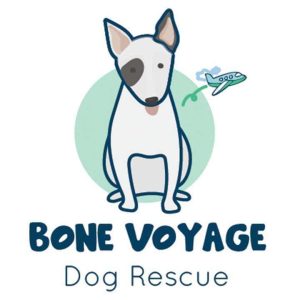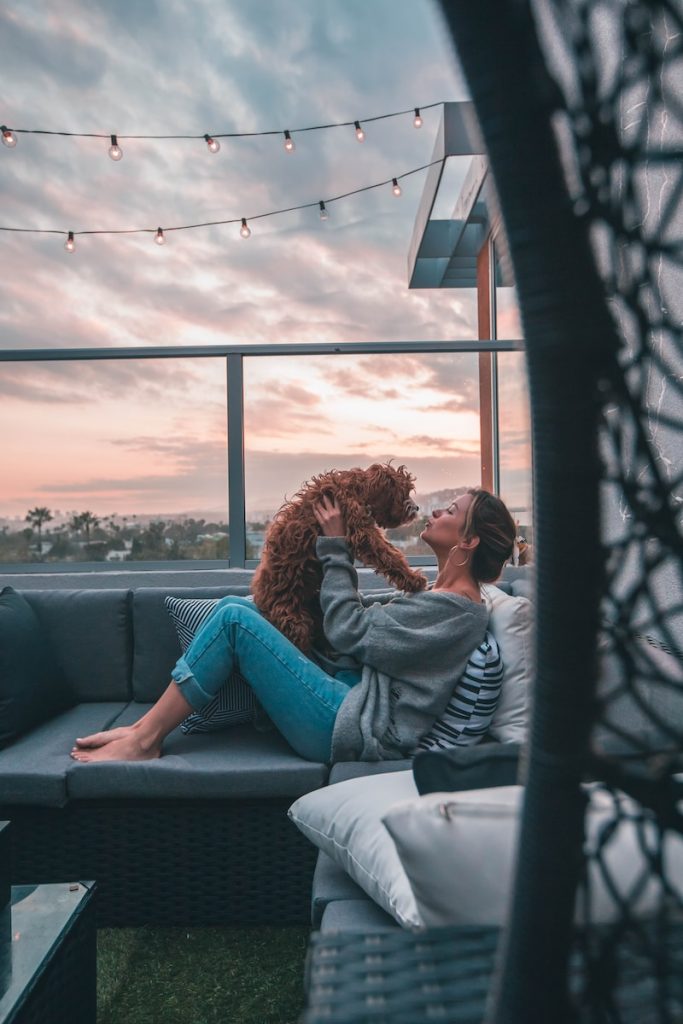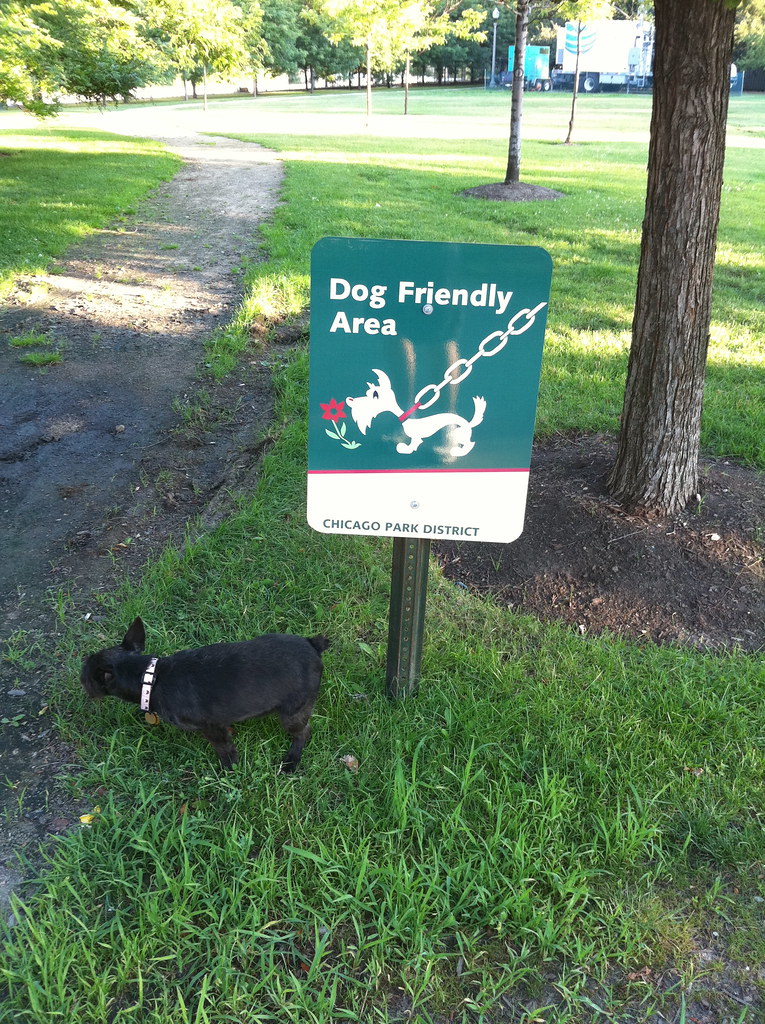There are things to consider before adopting a dog and bringing a canine companion into your life, there are numerous factors to consider when evaluating potential pet adoption. In this guide, we will evaluate the various aspects of adopting a canine companion and provide advice on making an informed decision that is beneficial for both you and your future pet.
We will begin by assessing your lifestyle and commitment, including analyzing your daily routine, evaluating living conditions for a pet, and discussing financial implications of dog ownership. Next, we delve into allergies and health concerns related to dogs while also providing guidance on choosing the right breed based on size, energy levels, grooming requirements and other factors.
Furthermore, understanding dog behavior & training needs is essential in ensuring a harmonious relationship with your newly adopted pet. We will cover early socialization techniques as well as basic obedience training methods. Additionally, preparing your home for a new addition is crucial; therefore we’ll discuss setting up designated areas for your pup’s comfort along with tips on pet-proofing for safety purposes.
Lastly, navigating through the adoption process can be overwhelming; hence our section on identifying reputable rescue organizations followed by post-adoption support resources such as finding local professionals (vets/trainers/behaviorists) and online communities dedicated to adoptive pet parents. By considering these key elements in our “Things to consider before Adopting a Dog” guide , you’ll be better equipped to welcome an amazing new member into your family!
Assessing Your Lifestyle and Commitment
Adopting a dog is a significant commitment that lasts for years. Before you adopt, evaluate your lifestyle to ensure you have enough time, money, and space to give your pup the care and consideration they deserve. Some things to consider before adopting a dog are work schedule, living arrangements, financial stability, and personal priorities.
Analyzing Your Daily Routine
Before committing to a canine companion, it is important to assess whether your daily routine will enable you to provide the necessary care. Dogs require regular exercise, feeding times, bathroom breaks and social interaction throughout the day. If your job requires long hours or frequent travel away from home without pet-friendly accommodations (source), it may be challenging to provide adequate care for a canine companion.
- Think about the amount of time you can spend each day strolling or amusing your pooch.
- Evaluate if there’s someone available during the day (such as family members or professional pet sitters) who can help care for your new furry friend when needed.
- Determine if any changes are required in order to accommodate having a dog in terms of work schedules or other commitments.
Things To Consider Before Adopting a Dog: Evaluating Living Conditions For A Pet
One of the things to consider before adopting a dog is the size of your living space. Some breeds are more suited than others fo apartment living due their energy levels and size requirements (source). Additionally,
- Ensure that pets are allowed in your current residence or any future housing plans.
- Consider if you have access to a fenced yard, nearby parks, or other safe areas for exercise and playtime.
- Evaluate whether the climate of your region is suitable for specific dog breeds that may be sensitive to extreme temperatures.
Financial Considerations In Dog Adoption
Dog ownership comes with various expenses such as food, grooming supplies, veterinary care (including vaccinations and routine check-ups), pet insurance, training classes, toys and more. The initial adoption fee is just one part of the overall cost associated with bringing a new furry friend into your life. It’s essential to ensure you can comfortably afford these ongoing costs before adopting a dog from Bone Voyage Dog Rescue or any other organization (source).
- Create a budget outlining anticipated monthly expenses related to owning a dog.
- Research average veterinary costs in your area for routine care as well as potential emergencies or health issues that may arise over time.
- Factor in additional costs such as boarding fees when planning vacations without your pet or investing in professional training services if needed.
It is essential to assess one’s lifestyle and dedication so as to guarantee a secure and caring environment for the animal is one the things to consider before adopting a dog. Allergies and health concerns should also be taken into consideration when adopting a pet; consulting with healthcare providers can help identify potential triggers or other issues that may arise.
Things To Consider Before Adopting a Dog: Allergies and Health Concerns
it is essential to assess any potential allergy or health issues in the household is one of the things to consider before adopting a dog. Research different breeds’ allergen levels and consult with medical professionals if necessary.
Identifying potential allergy triggers from dogs
Identifying potential allergy triggers is one of the things to consider before adopting a dog. Dog-related allergies are commonly caused by proteins found in a dog’s skin cells, urine, and saliva. These allergens can become airborne as the pet sheds its hair, dander (tiny flakes of skin), or through licking. Some breeds, such as Poodles, Bichon Frises and Maltese, may be better for those with allergies due to them producing fewer allergens than others.
- Hypoallergenic dog breeds, such as Poodles, Bichon Frises, and Maltese, have less shedding fur which may help reduce allergic reactions.
- Regular grooming can also minimize the amount of dander released into the environment.
- Air purifiers equipped with HEPA filters can help remove pet allergens from indoor air effectively.
Consulting with healthcare providers about pet-related allergies
If you suspect that someone in your household has an allergy to dogs but aren’t sure how severe it might be, it’s essential to consult with a healthcare provider for advice on managing symptoms while living alongside furry friends:
- Schedule an appointment with an allergist who specializes in diagnosing animal allergies; they will perform tests like skin prick testing or blood work analysis determine severity level present within individual patients’ immune systems responses against specific canine antigens causing reaction issues among those affected by this condition.
- Discuss potential treatment options, such as allergy shots (immunotherapy), antihistamines, or corticosteroids to help manage symptoms and reduce the risk of allergic reactions.
- Consider spending time around dogs in controlled environments before committing to adoption; this can provide valuable insight into how well you might tolerate living with a pet full-time while also helping identify any triggers that could exacerbate existing health concerns further down line too.
Taking these precautions will ensure that both you and your new canine companion can enjoy a happy, healthy life together without compromising anyone’s wellbeing in the process. Remember always to consult with medical professionals if necessary when considering adopting any animal into family settings where allergies may be present among members involved therein.
Before deciding to bring home a pet, it is wise to seek medical advice from your healthcare provider in order to address any potential allergies or health concerns. Before deciding on a particular type of pet, take into account things like size, energy level and grooming demands to make an educated selection.
Things To Consider Before Adopting a Dog: Choosing the Right Breed for You
One of the things to consider before adopting a dog is researching the various breeds available and assess which one would best fit your lifestyle needs and preferences. Different dog breeds have unique traits, energy levels, grooming needs, sizes, and temperaments, making them more suitable for certain households than others. By conducting extensive research on various breeds and gaining a thorough comprehension of their unique characteristics, you can ensure that you make an informed decision when choosing a new furry family member
Factors Affecting Breed Suitability (Size/Energy/Grooming)
- Size: Consider whether you prefer small or large dogs based on your living space limitations and personal preferences. Smaller dogs may be better suited for apartment living while larger breeds might require more room to roam.
- Energy Levels: Some breeds are known for being high-energy while others are more laid-back. Make sure to choose a breed whose energy level aligns with your activity level so you and your pet will enjoy spending time together.
- Grooming Needs: Grooming requirements vary greatly among different dog breeds. While some only need occasional brushing or bathing, others may require regular professional grooming sessions due to their coat type or shedding habits. Be prepared to invest in proper grooming tools or services if necessary.
To assist you in navigating this process of selecting the ideal breed for you, there are several online resources available such as the American Kennel Club’s Dog Breeds page, which provides detailed information about each breed’s history, temperament, size range etc., along with photos showcasing what they look like too.
Popular Family-Friendly Dog Breeds
While every dog is unique, certain varieties are known for their family-friendliness and adaptability to different living situations. Remember that mixed-breed dogs can also be wonderful additions to your family. Adopting from a rescue organization like Bone Voyage Dog Rescue can provide you with a unique and loving pet that may have the best traits of multiple breeds.
Selecting the appropriate breed for your lifestyle is one of the things to consider before adopting a dog in establishing and sustaining an enduring bond with your canine companion. One of the things to consider before adopting a dog is comprehending behavior and training requirements.
Things To Consider Before Adopting a Dog: Understanding Dog Behavior & Training Needs
Dogs require proper training to become well-behaved members of the family. Understanding basic canine behavior principles like socialization skills, along with obedience training methods, is crucial before adopting any furry companion into their new home environment.
Importance of Early Socialization
Socializing your dog from a young age helps them develop confidence and adaptability in various situations. It involves exposing your pup to different people, animals, environments, and experiences while ensuring positive associations are made. Later in life, a well-socialized dog is less likely to develop anxiety or aggression issues.
The American Kennel Club (AKC) recommends starting socialization as early as 7-8 weeks old and continuing throughout their first year. Enrolling your puppy in a reputable dog training class can be an excellent way to begin this process.
Basic Obedience Training Techniques
Obedience instruction teaches canines essential orders such as “sit,” “remain,” “come,” and “leave it.” These commands aid in forming an effective connection between you and your pup, while also making sure their safety when confronted with various circumstances.
- Positive Reinforcement: Rewarding a dog’s positive behavior with treats, praise, or gifts encourages the animal to continue exhibiting it. Instead of disciplining undesirable behaviors, this method focuses on reinforcing desirable ones.
- Lure-Reward Training: Using treats or toys as lures, guide the dog into performing specific actions (e.g., sitting) before rewarding them. Gradually, the lure is phased out, and the dog responds to verbal commands or hand signals.
- Clicker Training: Clicker is a small device that produces an audible click when touched. It serves as a marker to indicate precisely when your dog performs the desired behavior. The click is promptly followed by a reward, thereby associating your pet’s behavior with positive reinforcement.
Patience and constancy are essential for successful training of your pup. Remember that each dog learns at its own pace; some may require more time and repetition than others. For additional guidance on effective training methods, consult resources like Whole Dog Journal, or seek help from professional trainers if needed.
Comprehending your pup’s conduct and training requirements is essential to guarantee a successful incorporation into their fresh residence. To help make the process easier, it is also essential to prepare your home for a new pet by setting up designated areas and pet-proofing for safety.
Preparing Your Home For A New Pet
Before introducing your new canine companion to the home, it is important to take steps in order to ensure a smooth transition and create a safe environment. By making necessary adjustments in advance, you can help prevent accidents and make the process of welcoming an adopted pet into your home much easier.
Setting up a designated dog area
A crucial step in preparing for a new pet is setting up a designated area where they will feel comfortable and secure. This includes providing them with essentials such as dog bed, food and water dishes, toys, and possibly even puppy pads. Consider using dog crates or playpens if needed to provide boundaries during the initial adjustment period.
Pet-proofing your home for safety
To keep both your new pet and household belongings safe from harm, it’s important to take precautions by pet-proofing various areas of the house:
- Secure trash cans: Ensure that all indoor and outdoor trash cans are covered or secured against curious noses that might rummage through garbage looking for treats.
- Create barriers around restricted areas: Use baby gates or other barriers to block off any rooms or spaces where you don’t want the dog roaming unsupervised. This can help prevent accidents and protect valuable items from damage.
- Remove potential hazards:
- Look for objects that could be hazardous to your new companion, such as electrical cords, toxic plants, and small objects they could ingest. Keep them out of reach or eliminate them entirely.
In addition to preparing the physical environment, it’s also essential to consider how you will introduce your new dog to other resident pets, if applicable. This may require additional planning and patience during the initial stages of bringing home your adopted dog.
Setting your home for a new companion is a crucial step and one of the factors to consider prior to adopting a dog to ensure a smooth transition into their forever family. Identifying reputable rescue organizations and navigating the adoption procedure are next.
Adoption Process and Choosing the Right Rescue Organization

When adopting a dog, it’s crucial to choose an ethical rescue organization that prioritizes animal welfare. Investigate rescue organizations close to you, assess their adoption systems and inquire about their regulations in order to make an informed selection.
Identifying Reputable Rescue Organizations
Finding a reputable rescue organization is essential for ensuring the well-being of both you and your future furry companion. Here are some guidelines for spotting reliable companies:
- Transparency: A good rescue organization should be open about its mission, policies, and procedures. Examine their online presence for data.
- Veterinary care: Ensure that the organization provides proper veterinary care for all animals in their custody by checking if they work with licensed veterinarians who perform regular check-ups.
- Returns policy: A responsible rescue will have a clear returns policy in case the adoption doesn’t work out as planned. This shows commitment towards finding suitable homes for each pet.
- Satisfied adopters: Read reviews from previous adopters or ask around within your community to gauge people’s experiences with specific rescues.
Navigating the Adoption Process
Adopting a dog typically involves completing an application form, which helps rescues match potential adopters with compatible dogs according to lifestyle and experience.
- Filling out an application form:This step helps rescues gather information about potential adopters so they can match them with suitable dogs based on factors such as lifestyle compatibility or experience level. You may find our adoption application form as an example.
- Home visit:A representative from the rescue organization may visit your home to assess its suitability for a dog and address any concerns or questions you might have.
- Meet-and-greet with the dog:You’ll have an opportunity to meet potential canine companions, interact with them, and see if there’s a connection between you both. It’s essential to involve all family members in this process.
- Paying adoption fees:Adoption fees help cover costs such as veterinary care, food, and shelter expenses. Make sure you’re aware of these fees before committing to adopt a pet.
- Taking your new friend home:If everything goes well during previous steps, it’s time to welcome your new furry companion into their forever home. Remember that patience is key during this transition period as they adjust to their new environment.In conclusion,Remember that adopting a dog is not only about saving one life but also making room for another animal in need at the rescue organization. By carefully considering these factors and researching dog breeds and behavior, you can make an informed decision about adopting a dog. I retired early
It is important to research and vet potential rescue organizations before committing to the adoption process, as there are many scams out there. Once you’ve chosen a rescue organization to adopt from, having the necessary aid and assistance available can guarantee your pet will have a smooth transition into their new home.
Post-Adoption Support & Resources
After bringing your new furry friend home, having access to post-adoption support is essential for ensuring a smooth transition. Look into local resources such as veterinarians, trainers or behaviorists who can provide assistance during this time period if needed. IThis section will go over the significance of finding regional pet experts and making use of online networks and resources for adoptive pet owners.
Finding Local Pet Professionals (Vets/Trainers/Behaviorists)
One of the first steps in providing proper care for your newly adopted dog is establishing a relationship with a trusted veterinarian. Regular check-ups and vaccinations are crucial to maintaining your dog’s health. To find a reputable vet near you, consider asking friends or family members for recommendations or searching online directories like AAHA-Accredited Hospital Locator.
For behavioral concerns, professional trainers or behaviorists can provide assistance in teaching obedience and socialization skills to make your pet an important part of the family. These experts can offer guidance on obedience training techniques and socialization skills that will help ensure your dog becomes an integral part of your family. Some popular websites where you can search for certified trainers include CCPDT Directory and APDT Trainer Search.
Online Resources and Communities for Adoptive Pet Parents
- Pet Health Information: Websites like PetMD and Vetstreet offer a wealth of information on pet health, nutrition, and behavior. These resources can help you to comprehend your pup’s needs and address any potential issues that may emerge.
- Pet Adoption Forums: Online communities such as the RescueDogs subreddit or the Adopted Dog Support Group on Facebook provide a platform for adoptive pet parents to share their experiences, ask questions, and establish connections with those who have had similar circumstances.
- Dog Training Resources: Websites like Positively by Victoria Stilwell, and YouTube channels such as Zak George’s Dog Training Revolution (@zakgeorge21) offer free training tips, videos, articles to assist in training your adopted dog effectively using positive reinforcement techniques.
Utilizing these post-adoption assistance services will not only make the transition simpler for both you and your new pup, but also guarantee that they are given the highest quality care throughout their lifetime with you. Remember that adopting a dog is an ongoing commitment – stay informed about their needs so you can continue providing them with love, attention, and proper care.
Frequently Asked Questions Dog Adoption Considerations
What Are the most important Things To Consider Before Adopting A Dog?
The most important consideration when adopting a dog is ensuring that your lifestyle, living conditions, and financial situation can accommodate the needs of the pet. This includes evaluating factors such as available time for exercise and training, space in your home, and budget for food, grooming, and veterinary care. Researching breeds to find one that matches your requirements will help ensure a successful adoption.
What is the 3-3-3 rule when adopting a dog?
The 3-3-3 rule refers to an adjustment period new adoptive dogs may experience: three days to settle into their environment; three weeks to become more comfortable with routines; and three months before fully integrating into their new family. It’s essential for adopters to be patient during this process while providing consistent structure and positive reinforcement.
What are considerations for owning a dog?
Owning a dog involves several key considerations including:
- Lifestyle compatibility
- Allergies or health concerns
- Breed suitability based on size/energy/grooming requirements
- Dog behavior understanding & training needs
- Preparing your home (pet-proofing)
Conclusion
From assessing your lifestyle and commitment to choosing the right breed, understanding behavior and training needs, preparing your home, navigating the adoption process, and finding post-adoption support and resources – there are many important factors to consider when adopting a furry friend.
Thoroughly evaluating your preparedness for pet guardianship and researching adoption details can assist you in making an educated decision that is beneficial to both yourself and the pup.
If you’re prepared to move forward with your considerations for adopting a dog, check out Bone Voyage Dog Rescue. At Bone Voyage Dog Rescue, you’ll find an array of furry friends just waiting to be welcomed into a forever home. Don’t wait any longer – start your journey towards becoming a pet parent today!






